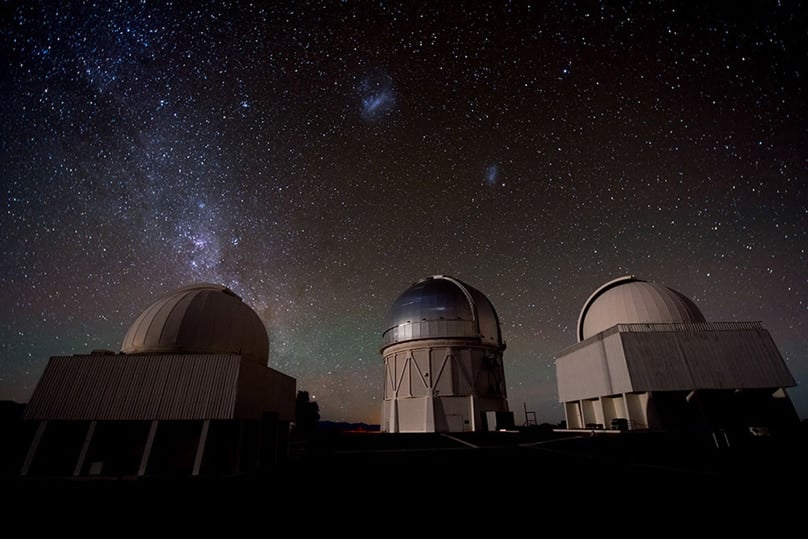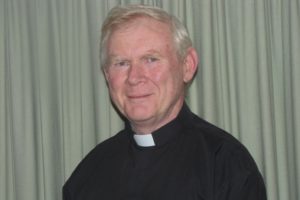
Ask your average millennial about the Church and Science and you’re likely to get an overwhelmingly negative response: “The Church is archaic and medieval but science is progressive” would be a pretty typical answer. Melbourne Deacon Joseph Leach, planetary geologist, recently retired lecturer from Melbourne University’s Department of Geomatics and also a former NASA researcher, tells a different story — one that attempts to grapple with real history and real science, and not potted prejudice.
How did you come to be interested in planetary geology?
The Apollo missions to the moon captured my imagination as a young boy and space was an interest from then on. The natural world has always fascinated me so geology and biology were a natural choice when I came to study at University. I was lucky to be able, later on, to combine my love of the natural world with my interest in space.
You worked with NASA investigating the surface of Mars, could you tell us about this?
My PhD was on the geomorphology of the Martian north polar ice cap. It was part of a NASA guest investigation and I was part of a team that were doing modeling of the ice cap movement. I was to provide calibrating data from the analysis of orbital images, mostly from the Viking II Orbiter. It looked at the glacial landforms in the polar region, as well as things like sand dunes, to provide physiographic data for the modeling team.
You are also an ordained Deacon, could you describe some of the duties that come with that?
A Deacon is the third order of the Catholic clergy. He is an assistant to the Bishop or Priest. As such, he assists at Mass; officiates at baptisms, weddings and funerals; and helps out in the pastoral activities of the Church, either in a parish setting or elsewhere. Fundamentally, however, a deacon is a herald of the Gospel and his main role is to proclaim, to teach, and to live the Gospel.
What do you think of the idea that faith and science are opposed to each other?
If both science and faith are correctly understood, then this idea that faith and science is opposed to each other is impossible. Both seek the truth and the truth cannot be opposed to itself. The empirical truth, discovered by science, and the revealed truth, known through faith, cannot contradict each other. Science looks at how the world works and faith seeks to understand why there is a world at all. Science looks at how the world functions while faith looks at what this function means. The old saying that faith without science is blind and science without faith is pointless holds pretty true.

Are there many people of faith in your field?
I don’t really have the figures ready but I understand that the religious faith of scientists pretty much matches that of the general population. It is certainly true that many of the great figures in science have been devout Christians. Indeed, the list of priests who have had made major contributions to science is very long and ranges from cosmology to genetics. I was fortunate to be taught by Dr G Thomas, one of Australia’s most respected palaeontologists and a devout Catholic. Two of my great friends, while I was doing my PhD, were also devout Christians and went on to become leaders in their fields: one in palaeontology and the other in tectonics.
Have you come across any moments where your faith has been challenged by your work?
I can honestly say no. As I said, these are two complementary but distinct fields of human activity. I really can’t see how science could challenge my faith. In fact, my understanding of the natural world has, many times, enhanced and broadened my faith.
Have you had moments where your faith has grown?
Certainly, God’s word is written in creation just as it is in the Scripture. There are times when you find something and think, ‘Wow, that’s really cool’; or you see something and realise, all over again, how truly beautiful this universe is. These are moments when you see, as it were, God’s brush strokes in His creation.
Sigmund Freud is famous for making a distinction between “scientific” non-belief and childish “belief”. What would you say to this?
This, like much of what Sigmund Freud wrote, is just silly. Freud was more of a philosopher than a scientist. For a start, there is no such thing as ‘scientific non-belief’. All science is based on a set of beliefs that cannot be proved [i.e., are non-scientific in themselves]. A short list would include: the belief that the universe actually exists and is not simple a construct of my mind; that it is not random but has its own defined nature, regardless of what anyone thinks or knows about it; that we can accurately observe the universe through our senses; that we live in an understandable or rational universe; and that we can understand what we observe. All of these are unverifiable beliefs that form the basis of science. All of them also come from a Christian understanding of creation by a rational God. It is simple history to say that modern science was born in the Catholic Church.
Secondly, the description of belief as ‘childish’ is simply a mark of shallow thought. We all have belief systems from which we operate and the simplistic reductionism of people like Richard Dawkins is far more childish than the complex theological thought of Pope Benedict XVI or even the mystical speculations of Teilhard de Chardin [a theologian and highly respected palaeontologist].
What do you think of scientists such as Richard Dawkins or Stephen Hawkins who say that they don’t believe in God because they are scientists?
They are scientists who don’t believe in God. It’s not science that has caused their unbelief and they have never been able to say, in any convincing way, how it might. Also, there are other scientists, just as qualified, who are people of great faith.
What would you say to Catholics thinking of pursuing a career in the sciences?
Always think of this, in your own heart, as a way to deepen your knowledge and understanding of God. Don’t fall for the temptation to leave God out of the picture. Remember, There is only one truth and, properly understood, empirical truth and revealed truth cannot contradict each other. When someone says something, always consider their evidence: not their theory, their evidence.
